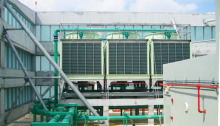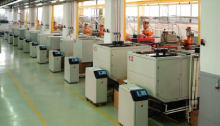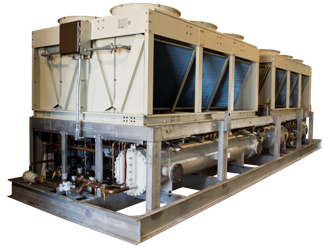Free Cooling System – Cooling Tower Option
A couple of weeks ago, we highlighted a dry cooler based Free Cooling System. While that system has its advantages, another option is a system centered around an evaporative cooling tower. As we discussed in our previous post, dry cooling systems provide a very beneficial means of cooling your process in the cool winter months. In…



